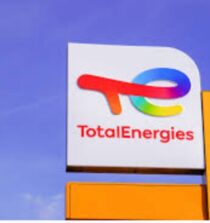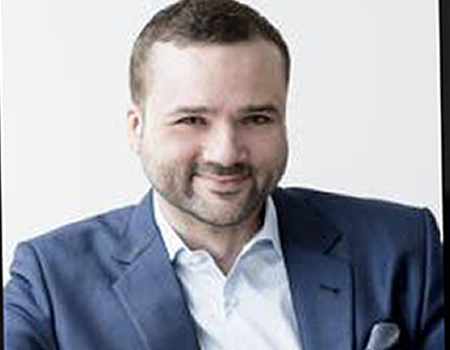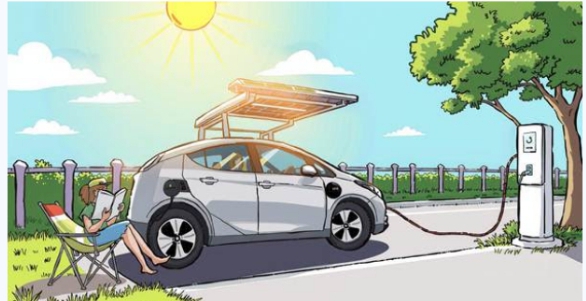Martin Haupts is the founder of Phanes Group, a firm that focuses on renewable energy and emerging markets. Since 2012, Martin has orchestrated the company’s transition from an advisory-focused firm to an integrated solar developer and investment manager with a transaction volume exceeding USD 250million by 2016. Under Martin’s stewardship, Phanes Group secured the largest distributed PV solar project in the Middle East, the largest PV solar project in the Caribbean and a 260 MW project portfolio in Nigeria as well as in several other Sub-Saharan markets.
With 17 years in asset management and infrastructure finance, Martin has a wealth of experience in commercial and legal structuring in the cleantech industry and expertise in Islamic Finance. He was Global COO for Products and Solutions at Credit Suisse Asset Management in London and Zurich. In the UAE, Martin was Head of Asset Management for the UAE-based Gulf Merchant Bank, and established Dubai-based Themar Partners that was later merged into Phanes Group. Martin holds an MBA from INSEAD, France/ Singapore, and a Masters in Corporate Law from the University of Hamburg, Germany. Martin in this interview with ENERGY WORTH bares his mind on chances of renewable energy and emerging markets.
Marlon Don Santos was recently announced as the winner of Phanes Group’s First Solar Incubator project. How did you feel about the success of the program and what are the next steps regarding financial and technical support expected to be provided for the project?
The Phanes Group Solar Incubator was a huge success. From the submission phase, we were overwhelmed with over 1 GW of high-quality projects from more than 15 countries. We shortlisted three projects which were presented to a live panel session during the Unlocking Solar Capital: Africa conference in Abidjan, Côte d’Ivoire.
Marlon will be joining us in Dubai soon to meet the team and prepare for the kick-off incubator phase 4-day workshop. In Q12018, he will get the opportunity to personally learn from and work with some of the industry’s most experienced individuals, including Phanes Group Solar Incubator’s most senior partners. This will help us raise the project to international standards.
Another important step of the partnership is the CSR concept. Marlon’s proposal blends in the local agricultural community, increasing the livelihood of the villages around the project site. This concept will be refined and developed during the incubator phase, and then implemented to add value to the local communities.
How do you think this initiative can be extended to other sub-Saharan African communities?
The Phanes Group Solar Incubator initiative is open to all PV projects located in sub-Saharan Africa.
We are committed to the sub-Saharan region, particularly West Africa but also to select markets in Southern and East Africa. In these regions, the key to bridging the energy gap through solar energy is bankability—ensuring that our projects are financially viable is a key goal for Phanes Group. We hope that the Phanes Group Solar Incubator will foster the growth of bankable PV projects for the region, now and in the years to come.
This was only the first edition of the Phanes Group Solar Incubator—due to its success we are planning to repeat the initiative annually and extend its reach to benefit also off-grid communities in the region.
What have been your experience, challenges and prospects in the promotion of renewable energy?
The main challenge in sub-Saharan Africa is bankability. Markets in sub-Saharan Africa are supported by development finance institutions or multilaterals, which have much more stringent lending requirements than, for example, commercial banks in Europe. While a company like Phanes Group is in the project development process, we basically have to apply much more stringent, much higher standards in terms of putting the project together.
From an equity perspective, growing competitiveness is certainly a challenge. There is a compression of margins in the PPA space. On the one hand, there are lower margins from the sale of electricity, however in many ways equity still has the same cost as two or three years ago. In some ways, we can offset that with the lower cost of technology. Looking at growing competition on the component side, this brings certain cost expectations. Let’s look at the price erosion in the panel market. We are observing that in some sub-Saharan markets like Kenya and South Africa, it becomes increasingly difficult to balance between the market’s expectations from an equity/cost perspective. The local regulators have their own ideas about what a competitive energy price is given the recent record low prices announcements, however, they do not how to translate that into reality which puts a lot of pressure on the private sector that has to make sure projects will still be deliverable from a bankability and commercial perspective. A viable business model in new markets with lacking infrastructure and regulatory frameworks can never match these price expectations – and is also not healthy for the industry as such.
We hope to see clean and reliable energy access in sub-Saharan Africa increase substantially over the next couple of years due to a stronger regulatory infrastructure. In sub-Saharan Africa, risk mitigation is crucial for international investors looking to enter the region. The investment environment is developing rapidly, however, investors are still looking to be able to see a more transparent and predictable view of the socio-economic climate, and the regulators in a specific market.
How do you get finance for your projects?
Our capital markets and structured finance expertise enables us to meet the funding requirements needed to drive a project from its initial stage to successful commercial close.
To do so, we invest in our solar projects, raise equity, and arrange for debt at every stage.
However, delivering a project is not just about securing the finance. As an end-to-end solar provider, one of the advantages that we bring to the table is that we follow an integrated approach. We have a highly specialized and experienced commercial and technical team working hand-in-hand to bring projects to fruition. This approach has given us the speed and advantage to deliver projects in challenging environments where others have failed. Our model is ideal for sub-Saharan African projects because it allows us to undertake diligent risk review, financial review, and deliverability all under one roof. This kind of structure makes the continent even more attractive to us.
Is your mission to develop PV initiative with strong CSR component yielding positive fruits?
Phanes Group’s CSR is embedded in its business model. As an international end-to-end solar developer, our aim is to finance, educate, and empower local developers across the MENA and sub-Saharan African to become self-reliant, while simultaneously promoting the growth of clean, sustainable energy.
We additionally seek out to develop projects that add value to the local communities through CSR initiatives that we combine with the delivery of our large-scale projects. We partnered with DP World for a pilot project to deliver a solar powered classroom for a school in Somalia. Phanes Group donated and installed solar panels on the rooftop of a shipping container that was converted into a classroom to provide clean electricity. The container is supplying the community with a valuable learning space, and our solar energy system will provide electricity to power the lighting and charging points for school equipment. This is just one example of our CSR initiatives in Africa.
Phanes Group is not solely a provider of PV solar solutions—we are a partner that builds sustainable infrastructure that is easy to deploy and access, while providing a clean source of energy and striving to develop the countries in which we operate. This is an important element of our impact investment and CSR strategy.
Is Nigerian environment conducive and beneficial to your business?
Phanes Group has had a positive experience with Nigeria— with 235 MW of grid connected PV solar in Nigeria across three different projects. The first of the three to be built, in the Sokoto region, is backed by one of the Nigerian government’s 14 PPAs.
Beyond the grid connected and utility scale PV projects, Phanes Group has a keen interest in delivering power within the C&I segment and also to rural communities off the grid.
Can you mention some of the successful projects that Phanes Group has executed in Nigeria, Africa and the world at large? Are these projects sustainable?
Phanes Group’s focus in on sub-Saharan African, and we have already achieved some success stories. We are particularly excited about our Sokoto project, which is targeted for financial close in 2018. The project was one of only 14 to be awarded a PPA by the Nigerian Government last year and will play an important role in enabling skill transfer, local job creation and socio-economic growth in northern Nigeria.
We also delivered a mini-grid in Niger (Boki), to provide electricity to an off-grid village that previously had to rely on unsafe and unhealthy powers sources like diesel generators. In Niger, we will be electrifying up to 1,000 villages -in stages- throughout the next three years. Phanes Group believes that off-grid solar systems built on a strong and sustainable business model are the way to electrify the continent.
In total, our solar energy pipelines exceed 600 MW.
In the next five years, what are your projections for the Phanes Group?
Our long-term ambition as a company is to fortify our role of being one of the active developers and IPP’s in sub-Saharan Africa, delivering 150-200 MW p.a. over the next three years. Wide-scale roll-out of our rural electrification initiatives to bring power to as many communities as possible is also very important for us. We are also actively pursuing a wider footprint in MENA and the Central Asian markets.
Over the next five years, we hope that Phanes Group will continue to play an important role in empowering local communities, and grow alongside our partners.







